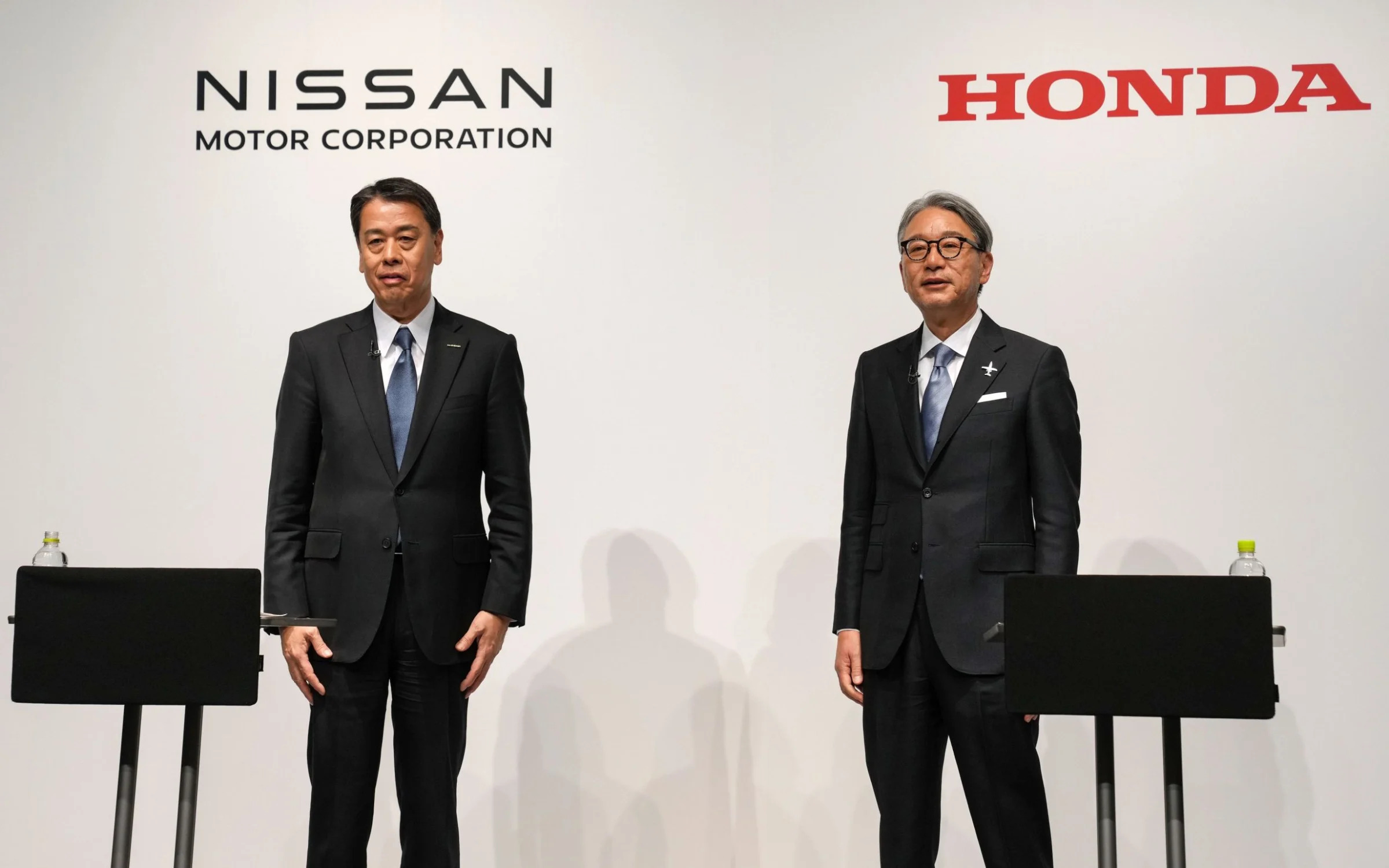India cuts import taxes on EVs in win for Tesla's entry plans

India will lower import taxes on certain electric vehicles for companies committing to invest at least $500 million and setting up a local manufacturing facility within three years, a policy shift that could potentially bolster Tesla's plans to enter the South Asian market.
Companies must invest a minimum of $500 million in the country and will have three years to establish local manufacturing for EVs with at least 25% of components sourced domestically, according to a government press release on Friday. Firms meeting these requirements will be allowed to import 8,000 EVs a year at a reduced import duty of 15% on cars costing $35,000 and above. India currently levies a tax of 70% to 100% on imported cars depending on their value.
The policy change is likely going to pave the way for Tesla to enter India, as the Elon Musk-led company has been in talks with the government to lower import duties on its electric cars for years. The move also aligns with India's goal to boost the adoption of EVs and reduce its dependence on oil imports, with the country setting a target of achieving 30% electric car sales by 2030.
The new policy "will provide Indian consumers with access to latest technology, boost the Make in India initiative, strengthen the EV ecosystem by promoting healthy competition among EV players leading to high volume of production, economies of scale, lower cost of production, reduce imports of crude oil, lower trade deficit, reduce air pollution, particularly in cities, and will have a positive impact on health and environment," the Ministry of Heavy Industries said in a statement.
India's Commerce and Industry Ministry said separately the firms that invest at least $800 million in the country will be allowed to import up to 40,000 EVs, with a maximum of 8,000 units per year.
Tesla has been looking to enter India for several years. The carmaker initially wanted to establish a local footprint in 2021. Musk later resisted the India launch plan until New Delhi allowed the company to sell and service imported cars in the country.
Tesla is expected to enter India by importing its EVs from China's Shanghai, though it would move its manufacturing and battery plant over the next couple of years, BofA analysts wrote in a note late last year. The company is also estimated to launch a sub-$25,000 model — more affordable than its cheapest model in China (where Tesla sells cars priced between $32,000-33,000) — to cater to its Indian customers and take on incumbents, including Tata Motors and Hyundai.
"Net net, Tesla would be relevant for top 20-25% of PV mkt initially & assuming 30-40% EV shift here plus dominant share would yield 100-200K vols. Hence, it will likely still be long road for Tesla to garner scale volumes at this price point in India for its planned capacity of 500K pa," the BofA analysts wrote.
Unlike the U.S. and other major automobile markets, India's average car price is less than $10,000, and 70% of the cars sold in the country are below $15,000. Therefore, Tesla may use India as a manufacturing base to export its vehicles to Southeast Asia, the analysts estimated.
In September, India's Commerce Minister Piyush Goyal said Tesla targeted to almost double its automobile component sourcing from India to $1.7-$1.9 billion in 2023 from $1 billion in 2022.
Alongside Tesla, Vietnam's electric carmaker VinFast sees India as its new manufacturing hub. Earlier this year, VinFast, which is currently struggling in the U.S. and Canada, announced its plans to invest $2 billion in the country, with $500 million specifically to set up a 400-acre integrated facility in the Southern state of Tamil Nadu.
Lotus Cars, the sports car maker owned by China's Geely, also entered India last year by partnering with a local importer and launching its electric SUV Eletre.
Even though the Indian government intends to attract foreign EV players by introducing friendlier import tax policy, the country is primarily a two-wheeler-driven market. It also has local carmakers Tata Motors and Mahindra & Mahindra that often attempt to resist global players from expanding in the country.
Factbox-Electric vehicle plans of Indian automakers
Opening of the first Tesla store in Chile, in Santiago.
India said on Friday it would lower import taxes on certain electric vehicles produced by carmakers that commit to invest at least $500 million and start domestic manufacturing within three years.
The policy will lead to increased competition for domestic automakers from companies like Tesla and VinFast that are looking to tap the world's third-largest car market amid a global slowdown in EV growth.
Electric models made up about 2% of total car sales in India last year, and the government wants to increase that to 30% by 2030.
Below are EV plans announced by Indian automakers:
Tata Motors
Tata Motors, which commands more than 80% of India's electric car market, plans to have 10 electric models in its portfolio over the next 3-4 years, with EVs making up 25% of its total car sales by 2025, compared to 9.3% last year.
It currently sells four EV models, the latest of which is a new version of its Nexon electric SUV with a starting price of 1.5 million rupees ($18,000).
In 2021, Tata Motors raised $1 billion from TPG's Rise Climate Fund at a valuation of about $9.1 billion for its EV division.
Mahindra and Mahindra
Mahindra and Mahindra expects electric models to make up 20%-30% of its SUV sales by March 2027. Mahindra, which sells an electric version of its XUV 400 SUV, plans to push ahead with new electric SUV launches from 2025.
The carmaker has raised around $400 million for its EV unit from Singapore's Temasek and British International Investment.
Hyundai Motor India
The Indian unit of South Korea's Hyundai Motor plans to introduce five EV models by 2032, adding to the two SUVs it already sells - the Kona and Ioniq 5. It will also grow the number of its charging stations to 439 by 2027.
Hyundai has said it plans to invest close to $4 billion in the Indian market over the next decade, including for the launch of new EVs, charging stations and a battery pack assembly unit.
Maruti Suzuki India
Maruti Suzuki India, the country's top automaker by sales, plans to have six EV models by 2030.
Japan's Suzuki Motor, which holds a majority stake in the company, has said the group's first battery EV will be rolled out from Maruti's plant in the state of Gujarat by the end of 2024.
JSW Group
Indian steel-to-power conglomerate JSW Group, a new entrant in the EV category, said it will set up electric vehicle and battery manufacturing projects worth 400 billion rupees ($4.82 billion) in the eastern state of Odisha.
The group is also in talks with German auto major Volkswagen about supplying technology and components for its EV project, local media reported.
Honda and Nissan join forces to fend off Chinese electric car threat
Both Honda and Nissan have pledged to jointly explore developing software and EV components -
Nissan and Honda are poised to team up by developing electric vehicles (EVs) together as the Japanese car giants seek to fend off competition from China.
The two rivals on Friday said they were considering a possible tie-up in the areas of “electrification and intelligence”, the latter being a reference to driverless technology.
Both companies faced “common challenges”, bosses said, as they pledged to explore jointly developing software and EV components, such as batteries and other products.
The agreement comes as Japanese car makers, which have long been some of the most successful in the world, face a major challenge from their Chinese counterparts.
Following decades of investment, Chinese EVs are seen globally as some of the most advanced – with domestic players such as BYD, Chery, Geely and SAIC Motor enjoying a recent sales boom thanks to supportive policies from Beijing.
By contrast, Japanese car makers have focused increasingly on hybrids and are seeing their Chinese sales decline, with some firms expecting to cut back production while others, such as Mitsubishi, have exited the Chinese market altogether.
China overtook Japan last year to become the world’s biggest exporter of cars, including petrol, as the likes of BYD look to dominate new markets across the globe.
Both Nissan and Honda are among the top 10 biggest car makers by sales.
Makoto Uchida, president and chief executive of Nissan, said: “It is important to prepare for the increasing pace of transformation in mobility in the mid-to-long-term, and it is significant that we have reached this agreement based on a mutual understanding that Honda and Nissan face common challenges.
“We look forward to further discussions and aim to find win-wins for sustainable growth.”
Speaking to reporters, Mr Uchida added: “We are not competing only with the traditional car makers, but also with new players.
“These emerging brands are making inroads into the auto market and are trying to gain dominance by capitalising on their overwhelming price competitiveness and amazing speed.
“We cannot win the competition as long as we stick to conventional wisdom and traditional approach.”
Toshihiro Mibe, Honda’s president, added that they were going through a “once-in-a-century transformation in the automotive industry”.
On Friday, analysts said the move was aimed at catching up with Chinese rivals.
Chris Redl, an auto analyst in Japan, told Reuters: “Both of the companies are not at a high enough scale to create enough profit margins so they are actually under pressure to find a partnership.
“Even though they were very fierce rivals historically, it makes more sense for Nissan to get together with a Japanese company like Honda, rather than having these cultural wars with an alliance partner like Renault.”
Just 1.7pc of cars sold in Japan were electric in 2022, compared to about 15pc in Western Europe and 5.3pc in the US.
In the same year, EVs accounted for as much as 20pc of new cars sold in China.
- Questions and Answers
- Opinion
- Story/Motivational/Inspiring
- Technology
- Art
- Causes
- Crafts
- Dance
- Drinks
- Film/Movie
- Fitness
- Food
- Games
- Gardening
- Health
- Home
- Literature
- Music
- Networking
- Other
- Party
- Religion
- Shopping
- Sports
- Theater
- Wellness
- News
- Culture
- War machines and policy




